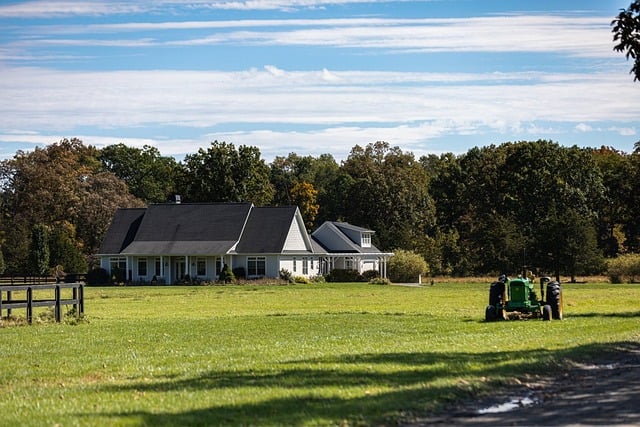Before purchasing mopeds for sale, thoroughly understand local licensing requirements, speed limits, and insurance coverage to ensure compliance, safety, and a smooth buying experience. Key considerations include age minimums (often 16), valid driver's licenses, competency tests, regular maintenance, and insurance. Keep detailed documentation like sales receipts and contracts for verification during license or registration applications. Adhere to mandatory registration and insurance obligations in many jurisdictions. Prioritize safety through comprehensive training programs and practical testing to minimize risks on the roads.
Unsure about navigating the world of mopeds for sale? This comprehensive guide breaks down the essential licensing requirements for new moped owners. We explore everything from understanding the legal framework and required permits to age restrictions, registration, insurance, and safety training. Whether you’re a beginner or looking to brush up on your knowledge, this article serves as your go-to resource for mopeds for sale licensing.
Understanding Mopeds for Sale: A Beginner's Guide

When it comes to understanding mopeds for sale, especially for beginners, there are a few key aspects to grasp before making a purchase. Mopeds, distinct from motorcycles, are lightweight, step-through vehicles that typically have a single-cylinder engine and offer a more relaxed riding experience. For those looking to own one, the first step is to familiarize yourself with local regulations regarding moped licensing. Many regions require specific licenses or registration for mopeds, which often differ from standard motor vehicles.
For beginners, it’s essential to understand that mopeds for sale may have varying speed limits and power outputs, so checking local laws ensures compliance and safety. Additionally, insurance coverage for mopeds can vary, and some providers might offer specialized plans catering to these unique vehicles. Understanding these aspects beforehand will make the buying process smoother and ensure a positive introduction to the world of moped ownership.
Legal Framework: Key Licensing Requirements

In the context of mopeds for sale, understanding the legal framework and key licensing requirements is paramount. Each jurisdiction has its own set of regulations governing the licensing of mopeds, ensuring safety and responsible usage. These requirements typically include age restrictions, driver’s license validity, and passing a basic competency test.
For instance, many regions demand that riders be at least 16 years old and hold a valid motorcycle or moped license. Additionally, regular maintenance checks and insurance are often mandatory. These measures not only protect public safety but also serve as a deterrent for irresponsible riding. Ensuring compliance with these licensing requirements is the first step towards enjoying your new mopeds for sale responsibly and legally.
Types of Licenses Needed for Moped Ownership

Mopeds, as a popular mode of transportation and recreational vehicle, come with specific licensing requirements that vary by region. For individuals looking to purchase mopeds for sale, understanding these licenses is essential before hitting the road. The primary license needed is often a driver’s permit or license, which allows the owner to operate the moped legally. This requirement ensures that riders are proficient and responsible behind the wheel.
In addition to a standard driver’s license, certain areas mandate separate licenses for moped owners, especially in regions where mopeds have specific speed limits and safety regulations. These specialized licenses often include additional training and testing to ensure riders understand the unique aspects of moped operation, such as low-speed maneuvering and handling in traffic.
Age Restrictions and Eligibility Criteria

When considering the purchase of a moped, one of the most critical aspects to understand is the age restrictions and eligibility criteria associated with licensing. These requirements vary significantly from region to region, so prospective buyers must familiarize themselves with local laws before taking to the streets. Typically, there’s an age minimum, often ranging from 14 to 16 years old, below which individuals are not permitted to operate a moped legally.
Elibility criteria extend beyond age. Potential moped owners may need to demonstrate proficiency in basic riding skills through training programs or written exams. Additionally, certain areas mandate the possession of a valid driver’s license from another class of vehicle, such as a motorcycle or automobile, before issuing a moped operator’s license. These measures are in place to ensure safety and responsible operation of mopeds on public roads.
Documenting Your Purchase: What to Keep

When purchasing a moped, it’s crucial to document your purchase properly to ensure compliance with licensing requirements. Keep detailed records, including the sales receipt, which should clearly state the make, model, and year of the vehicle. Additionally, retain any paperwork related to the transaction, such as contracts or agreements signed during the buying process.
These documents are essential for verifying your ownership and may be required when applying for a license or registration. They also serve as a valuable reference in case of any future inquiries or disputes regarding your moped’s legitimacy in the market.
Registration and Insurance Obligations

When considering purchasing mopeds for sale, understanding registration and insurance obligations is a key step in ensuring compliance with local laws. In many jurisdictions, buyers are required to register their vehicles with the relevant governmental authority. This process typically involves providing necessary documentation, such as proof of identity and ownership, along with payment of registration fees. Registered mopeds are issued unique identification numbers, which serve as a permanent record for tracking vehicle maintenance and ownership changes.
Insurance is another critical aspect that cannot be overlooked. Depending on local regulations, buyers might be mandated to have liability insurance, which protects against financial losses in case of accidents causing harm to others or their property. Additionally, comprehensive insurance, which covers damage to the moped beyond liability, may be recommended for added peace of mind. Understanding these registration and insurance obligations ensures that owners not only comply with legal requirements but also maintain adequate protection for their investment in mopeds for sale.
Safety Considerations: Training and Testing

When considering the simple licensing requirements for mopeds for sale, safety should always be at the forefront of your mind. Training and testing are essential components in ensuring that both new and experienced riders alike can operate these two-wheeled vehicles responsibly and safely. Comprehensive training programs equip riders with the knowledge and skills to navigate various road conditions, anticipate potential hazards, and respond appropriately in emergency situations.
Testing serves as a practical application of these learned skills, allowing riders to demonstrate their ability to handle mopeds competently. This not only contributes to personal safety but also plays a vital role in reducing traffic accidents involving mopeds for sale. By adhering to these safety considerations, individuals can confidently navigate the roads while minimizing risks and fostering a culture of responsible riding.
Local Regulations: City-Specific Guidelines

Common Mistakes to Avoid During Licensing

When navigating the process of licensing a moped for sale, many individuals make avoidable mistakes that can lead to delays or even legal complications. One of the most common errors is not understanding the specific licensing requirements in their area. Every region has its own set of rules and regulations, so it’s essential to research and familiarize yourself with these before beginning the process. Failing to gather all necessary documents, such as proof of identity, residency, and possibly a completed application form, can also cause significant setbacks.
Another pitfall is assuming that a moped is treated the same way as a motorcycle when it comes to licensing. Mopeds often have different regulations due to their lower speed and engine capacity. Ensuring you meet all the criteria for your specific moped model, including age restrictions and safety gear requirements, is crucial to avoid unnecessary challenges during the licensing process.
